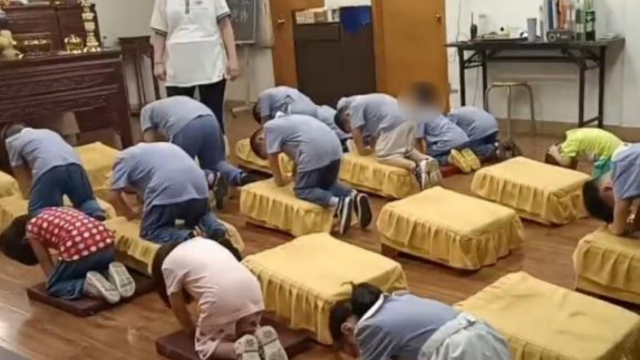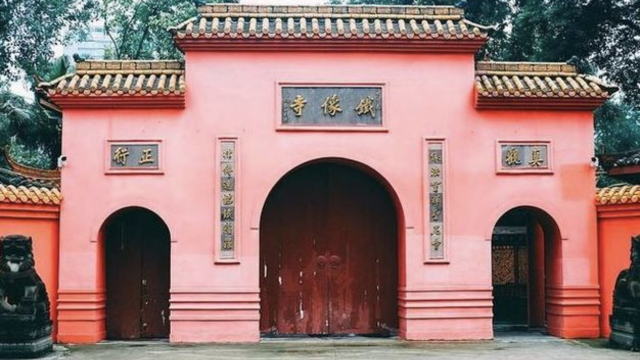Amid the nationwide crackdowns on religions, only the venues venerating Chairman Mao are protected from closures and demolitions.
by Li Guang
Residents of Xinye county in Henan Provinces Nanyang city don’t come to the Xingqing Temple to worship deities anymore. They gather here to revere China’s revolutionary leader Mao Zedong.
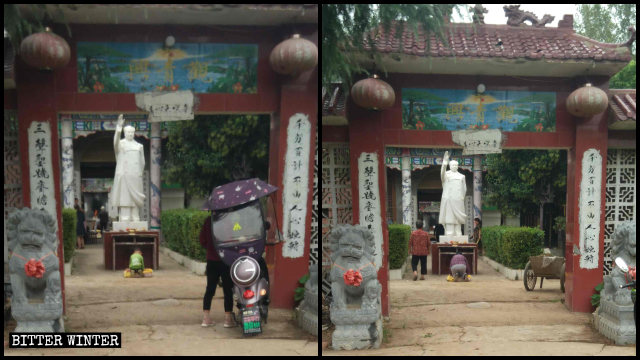
“All temples were closed down during the coronavirus lockdown, except for this,” a county resident commented. “Continuous streams of people came to worship Mao Zedong. The government has never restricted or closed it.”
In July, before reopening religious venues after lockdown restrictions have been lifted, the county’s Religious Affairs Bureau not only demanded to implement strict epidemic prevention standards but also ordered to remove religious books and incense burners from temples.
The Taoist Jade Emperor Temple received three government inspections in August. To reopen the venue, officials ordered to burn scriptures and drive away a nun who lived on the temple premises. The temple remained closed even after all demands had been implemented.
The Arhat Temple in Xincai county in Henan’s Zhumadian city was full of people during the height of China’s epidemic. Even though the temple didn’t have land ownership, property, and religious activity venue registration certificates, people could visit it because of a Mao Zedong wall-painting. In April, numerous people came for a grand consecration ceremony for a new Chairman Mao statue. Residents and local government officials regularly visit the temple, worshiping the figure on their knees.
“Only the temples with Mao Zedong statues were allowed to stay open,” a Xincai county resident said.
The director of the Chinese Nation’s Ancestor Temple in Zhecheng county in Henan’s Shangqiu city explained that his venue was allowed to remain open during the epidemic because it had a Mao Zedong statue. “We’ve spent 110,000 RMB [about $ 15,400] for it,” he said. “Our temple doesn’t have any certificates, but the government doesn’t ban it. Many people worship here during the epidemic, and more will come.”
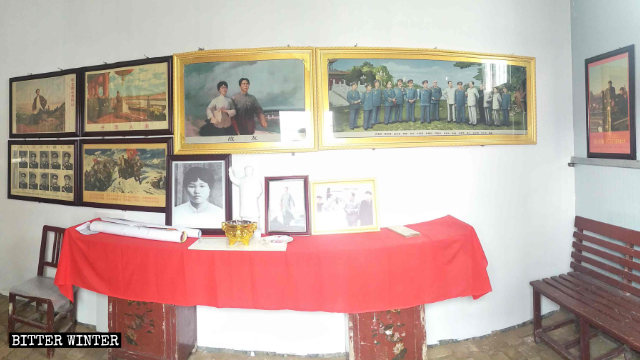
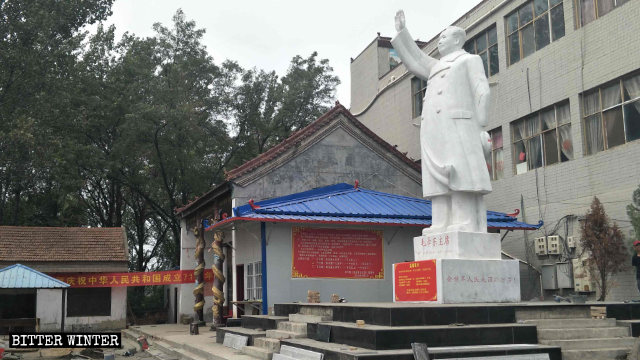
The Longchan Temple in the county’s Liyuan township also received countless worshippers because it has sculptures of Mao Zedong and the ten People’s Liberation Army marshals. Its director told Bitter Winter that they had never received a shutdown notice from the government, and many worshippers continue to visit it.
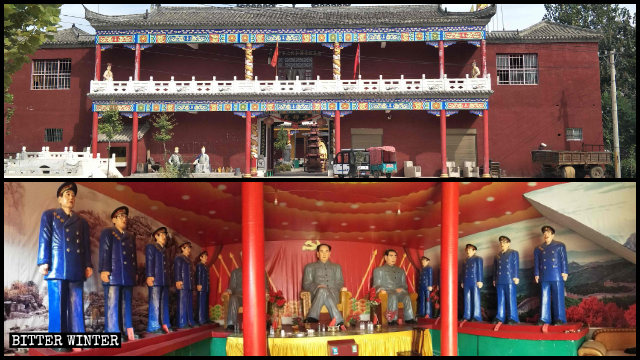
Many folk religion temples in the county ordered Mao Zedong statues to evade demolition.
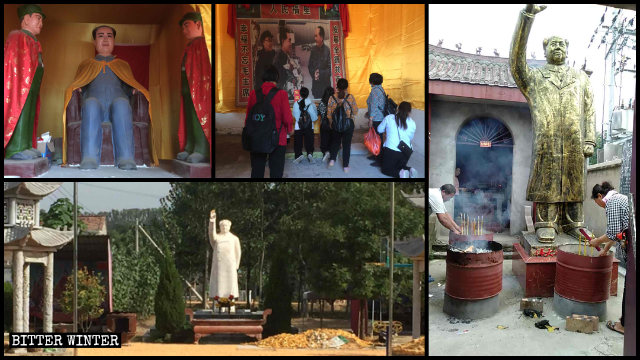
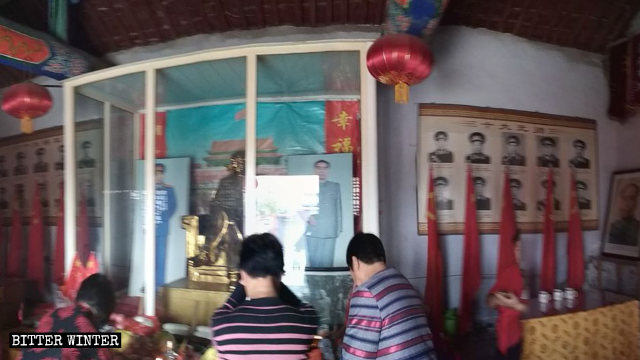
“If a temple does not worship Chairman Mao, the state will not allow people inside it,” a Zhecheng county resident said. “As soon as his statue appears, the temple becomes immune to closures.”
“Government officials don’t demolish temples with a statue of Mao Zedong,” a temple director in the area confirmed.
Supported by the government, more and more temples and memorial halls install Mao Zedong statues.
“Township officials encourage the building of memorial halls for Mao Zedong because Xi Jinping follows his path,” a temple director from Henan’s Yuzhou city explained. “That is why such memorial halls are allowed to be built without any permits. People will only be allowed to worship Chairman Mao, but not deities.”
The director’s small temple, featuring a Mao Zedong portrait, was recently converted into a Maoism center for people to put on military uniforms and sing revolutionary songs.
On July 1, Huaguanying village residents in Hebei Province’s Handan city’s Ji’nan new district gathered to unveil a new Mao Zedong statue in the memorial hall dedicated to him. The folk religion Laoye Temple next door, which used to attract numerous worshipers, has been converted into an activity center for the elderly.
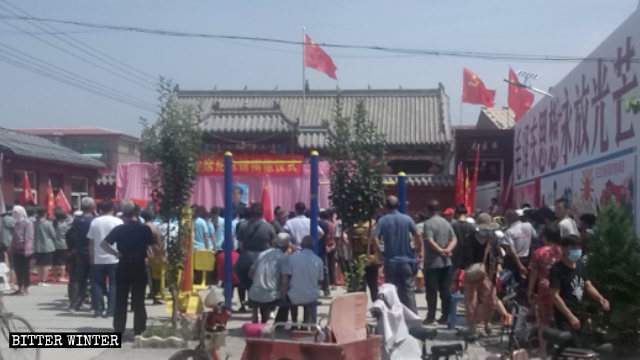
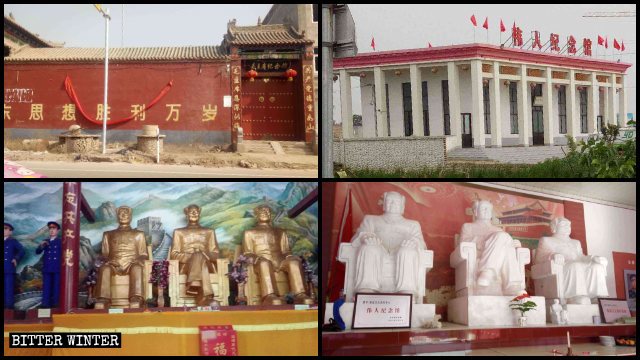
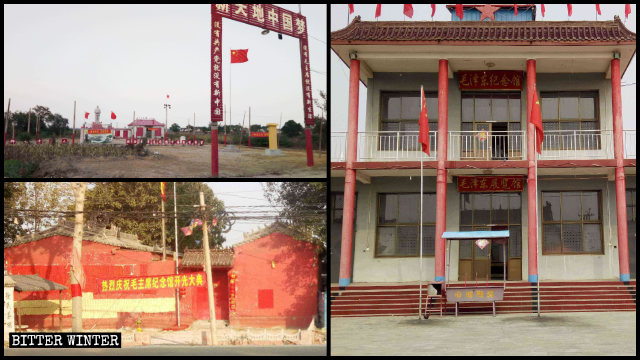
In a Mao Zedong memorial hall in the Lutai Temple in Henan’s Zhecheng county, a pair of couplets read, “A generation’s great man went away on a white crane, leaving behind a glorious memory of his supernatural powers.”
The Mao Zedong statue hype is greatly benefiting their manufacturers. “Mao Zedong statues sell quickly this year,” a stone carving factory worker in Henan’s Dengzhou city told Bitter Winter. “We used to make Buddhist and other statues, but a Mao Zedong figure is now placed at the most conspicuous position by the factory entrance.”
“Many Buddhist statue factories have been closed this year,” the factory’s director added. “Since religions are restricted, Mao Zedong sculptures keep us going. Those against Chairman Mao will be in a bad way.”
Source: Bitter Winter











